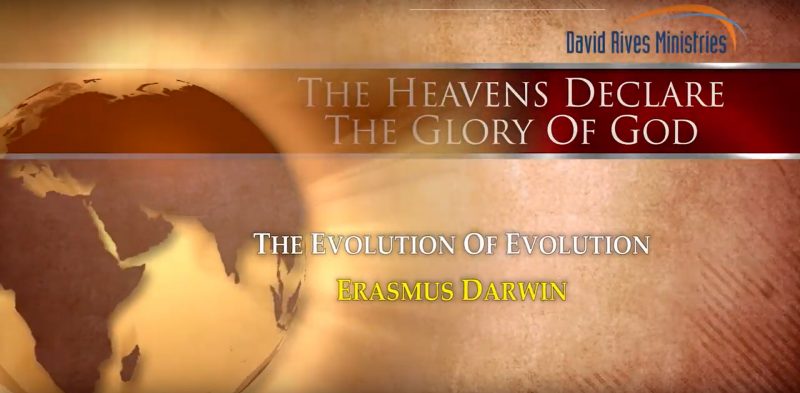Evolutionary ideas are all around us. Every time you turn on the TV, watch the news, or read a science magazine you will more than likely find evolutionary content. How did this philosophy become so popular that it literally took over science?
Most people picture Charles Darwin as an unbiased naturalist who discovered evolutionary ideas by studying the world around him. But that isn’t true. He had been influenced to doubt the Bible and accept long ages for the geologic record by some of the thinkers of his day. He’d even been influenced by evolutionary ideas through the writings of his grandfather, Erasmus Darwin.
Erasmus, despite not being nearly as well known as his grandson, was a successful physician, scientist, and inventor. He was even a poet and wrote and published some of his scientific ideas in poetry! Erasmus was anti-Christian and his family motto featured several shells with the Latin phrase “everything from shells.” His major work, Zoonomia, claimed that all warm-blooded animals were descended from one common ancestor. He later wrote that “all vegetables and animals now existing were originally derived from the smallest microscopic ones, formed by spontaneous vitality in primeval oceans.”
Erasmus’ evolutionary, and basically atheistic, ideas later inspired Charles Darwin. Charles even wrote “zoonomia” in his notebook when he began penning his evolutionary interpretation of what he observed. Most people are familiar with “Darwin’s finches” and know that Charles observed finches with different sized beaks on the Galapagos. He thought that small changes, like beak size, could eventually mean big changes into a new kind of organism. But this actually wasn’t an idea original to Charles. Erasmus had written about it before Charles was even born! In other words, he borrowed the theory.
Darwin’s grandfather left a legacy of evolutionary ideas that Charles popularized in his book Origin of Species. Erasmus’ and Charles’ ideas have made atheism respectable because they seem to be able to explain life without God. But we don’t see evolution in finches, or anywhere else. That’s simply an INTERPRETATION of the evidence, starting from a rejection of the Creator and His Word. When we start with God’s Word we see the evidence confirms the Bible’s history, not evolutionary stories about the past.
This was simply one more chapter in the history of evolution’s rise to popularity. I call it: “The Evolution of Evolution.” These archaic philosophies have seen far too many pseudoscientific complications added – in an effort to salvage the theory. It’s about time for a fresh approach.
I’m David Rives. Truly…the heavens declare the glory of God.

